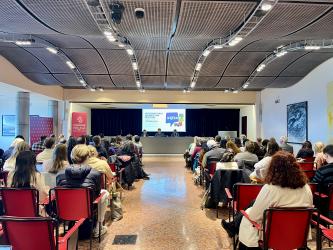Controversies around environmental issues such as the carbon credit market, the export of illegal timber, toxic gold mining, and deadly land disputes are common features for journalists working in tropical countries. In South America, Central Africa and Southeast Asia reporters often come face to face with stories that are complex, dangerous, and go beyond national borders. These stories deal with sectors that often involve illegalities, creating risks and ethical dilemmas for reporters. For example, how to depict the involvement of communities in illegal practices without losing focus on the systems that lead to the destruction of biodiversity and threaten the survival of the communities themselves? At the same time, where to find data and evidence that allows us to connect major international supply chains with the damages that are exacerbating climate change?
To uncover the influence of these supply chains on the environment, journalists work collaboratively across borders. In this panel, made up of one journalist from each of the world's tropical regions, we will discuss the problems they face during their investigations, such as risks during the field work and pressure from governments and companies. The panel will include three journalists, one from Colombia, one from Cameroon and another from Cambodia who have taken part in collaborations that expose illegal timber extraction, land disputes in indigenous territories and wildlife trafficking.
Organised in association with Rainforest Investigations Network.







